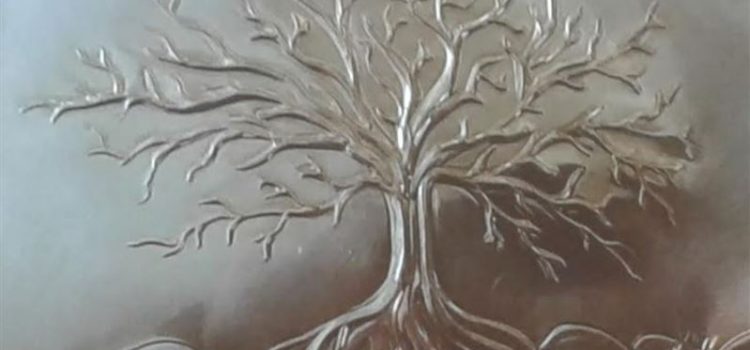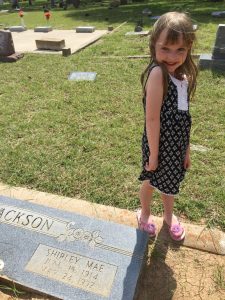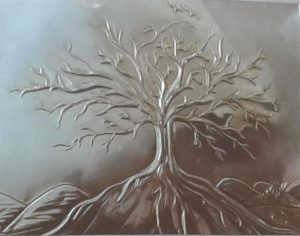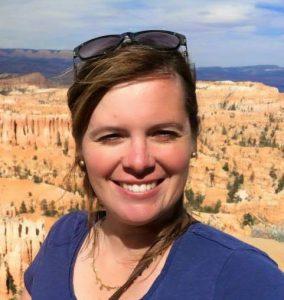
Last week my family sat in my newly married son’s basement apartment chatting. It had been a big day for us so far. We had dropped my middle son off at the Missionary Training Center for him to begin his service as a missionary for the LDS church. Feelings were a little raw, to say the least, but we were all feeling united. There is a sort of “miserable joy” that comes with such an event and it felt like one of those moments when your family story is unfolding before your eyes.

As we chatted, we got to talking about how we came to name of each of the six children in our family. When we got to our caboose, our cute Eliza Mae, we talked about he we turned to our family history to find her name. We wanted it to end with an “A” like her two older sisters and we knew we would be naming her Mae as a middle name. My husband and I both had grandmothers with the middle name of Mae so it seemed like a natural fit. “When we saw Eliza and saw that it was on our both our family lines we knew that was it,” I said. When I looked down at her she was beaming from ear to ear. We then proceeded to tell her about her great-grandma Mae’s and how she was like them in so many ways. She knows those grandmas even though she has never met them. They died long before she was born.
Related: What’s in a Name
Our conversation took me back to the weekend before when I attended the Ogden Family History Conference: Of Roots and Branches at Weber State University. The keynote speaker was Area Seventy and chairman of the board for Petersen Inc., Elder Steven Petersen. I was excited to hear his address because I had an opportunity to interview him earlier this year for another project and I was so impressed with his candor and love for family history. At the time he talked about how he loved to have “dashboard time” with people, meaning long car chats. I, too, think you get to know a person best from long car rides. You can ask the hard questions and give honest answers because guess what? You’re trapped! But I digress, Elder Petersen’s remarks were sure to be on point and of course they were. But one thing I especially loved about his thoughts were that of his wife’s Polly Petersen. It was obvious the two were on the same page about family history work and family life in general. The two brought out some points that really rung a chord with a me.
A family story creates a path to friendship
Polly Petersen recounted a story that occurred on their family ranch. They had set up a miniature blacksmith shop in honor of Elder Petersen’s great grandfather, Robert Anderson. Along with the blacksmith shop, they included the story of his life so family members could read it and get to know him. She talked about her young grandson reading the story and working in the blacksmith shop. “He was in awe of the story. It made everything we did worth the effort,” Polly said. She watched as her grandson took in every part of the story and they way he lit up while in the blacksmith shop created in their ancestor’s honor. “Teaching each other priceless family history helps us to become friends with them,” Polly said.
As she said that, a light went off in regard to my own life. As a child when we visited Texas each year to visit my dad’s family, we would take an annual pilgrimage to Walnut Springs, Texas where my grandma and grandpa grew up and then to the family cemetery not far from there. The men would take the front seat and the women would take the back seat. At first I would always clamor for the front, but as I grew older I was fine to let my sister take the front and I would sit between my mom and grandma and listen to the stories my grandma would tell about her growing up life on the Texas plains. She would tell stories of her life, but also of her parents. One story I remember in particular was that my great grandmother would tie her babies in the trees so she could go work the farm. Why did she do this? So the wolves wouldn’t get her babies! She knew she needed to work, but also knew she had to protect her babies. When I think my life is hard, I think of her and long to talk with her about her life. But I know a part of it, and I would like to think we would be friends.
I re-told this to my children when I took them to all those places my grandparents took me on a family vacation to Texas this summer. For more on that and how we may new family stories, click here.
My husband and I talk lovingly of our own grandparents almost daily with our kids. One, because we absolutely adored all our grandparents and two, because we want them to adore them as well. My daughter Julia Mary is named after her great-grandma Mary and she lights up when we talk about her feistiness and how Julia got that from her. She eats her recipes almost weekly and she knows her great-grandma and I am certain they will be great friends one day.
“The show how is more important than the tell how.”
This quote from Elder Petersen has been ringing in my ears all week. How often do we tell our kids stories or tell them how do to something – or even yell it? Guilty. Elder Petersen talked about how his father always taught him than showing him how to do something was so much better than telling him. He recounted a story about his father put hand on hand and foot on foot to teach him how to weld. The result was priceless – they got a physical arc and an emotional one as well. An experience neither will ever forget. And from that experience Elder Petersen grew a love for welding and with his father created a multi-million dollar business – Petersen Inc. Elder Petersen pointed out how valuable it is to teach people – especially our children and grandchildren how to do something by actually doing it with them – show them the family stories – show them how to do family history work. Don’t just tell. This couldn’t be more true in every aspect of parenting and grandparenting. I always find success as a parent if I’m willing to roll up my sleeves and go to work with my kids. Man, I don’t want to do it sometimes, but when I do the results are magic.
Our dishwasher has been broken for a while. I have hesitated to get it fixed because I want my kids to learn how to work at things, together. But it has become a bit of a chore. Last night I decided I better take a turn and washed the dishes. I invited my 14-year-old son to dry the dishes. He happily obliged because we were working together. We talked about his worries of the world and we talked about the best ways to solve them – prayer, thoughtful meditation and some more prayer. I got a better understanding of the “show how” method.
“Our history is the make up of what we become.”

When Elder Petersen said this, a tear came to my eye because of its truth! Our family history can shape us into better people no matter what that history is. If we have family members who have stumbled we learn from their mistakes. If we have family members who have had great and productive lives, we learn from their success. Knowing that history can shape who we become and it can only make us better.
Elder Petersen talked a lot about finding roots and branches – the theme of the conference. He referred to the sequoia trees in Northern California and how their root system is intertwined and how old and tall the trees are. “Because their roots interlock and intertwine they can stand through a millenium,” Elder Petersen said. He compared that to us with our family generations. “It creates a tapestry,” he said. “When trials and tribulations come how do we stand up against the fierce winds and fires? We stand together,” he said. I loved hearing this because every word of it is true. I love (and fear just a bit) when LDS Prophet Joseph Smith talks about the importance of family history work in the Doctrine and Covenants section 2:1-3: “Behold, I will reveal unto you the Priesthood, by the hand of Elijah the prophet, before the coming of the great and dreadful day of the Lord. And he shall plant in the hearts of the children the promises made to the fathers, and the hearts of the children shall turn to their fathers. If it were not so, the whole earth would be utterly wasted at his coming.”
Utterly wasted? Wow! That is a wake up call for me. I know family history is worth it in every sense of the word. I know my children have a stronger sense of self because of our family narrative.
Related: Getting it Right – Five ways Bruce Feiler taught me how to be a better parent
Our lives our richer, stronger and can withstand trials if we know some part of the lives of our ancestors. What are we all waiting for?
 Rachel J. Trotter is a writer at Evalogue.Life, where we tell personal and family stories that inspire, and help you tell yours. She has worked as a writer since her college days over 20 years ago. She loves telling people’s stories. She lives in Ogden, Utah and is busy raising six children and loves working on family history alongside her husband, Mat.
Rachel J. Trotter is a writer at Evalogue.Life, where we tell personal and family stories that inspire, and help you tell yours. She has worked as a writer since her college days over 20 years ago. She loves telling people’s stories. She lives in Ogden, Utah and is busy raising six children and loves working on family history alongside her husband, Mat.

Pingback: Finding Friends in Your Family - Evolve!
Another fantastic post that goes straight to my heart. I love the “path to friendship” idea. I find this has been so true for me as I’ve learned more about the people I come from. I KNOW them. And, truly, we are friends. There’s nothing like that kind of connection to generations you’ve never met. (I may have to refer to this article in one of my own. Again. 😉 I love this!)
I love writing family stories too! I have several that are gathering dust, though. I’ve interviewed the family member and started writing . . . Sometimes it’s best to just take it a story at a time, though. Thanks for your blog post. I’m feeling inspired to start–even if it’s just one story.
I LOVE hearing stories about ancestors! It’s so fun to make that connection, beyond names and dates! I’m trying to do this for the family members I know and love in my life. I got started with a book about my grandmothers (with photos & stories in it). It is a treasure to us!